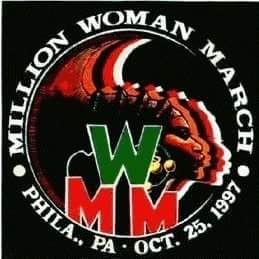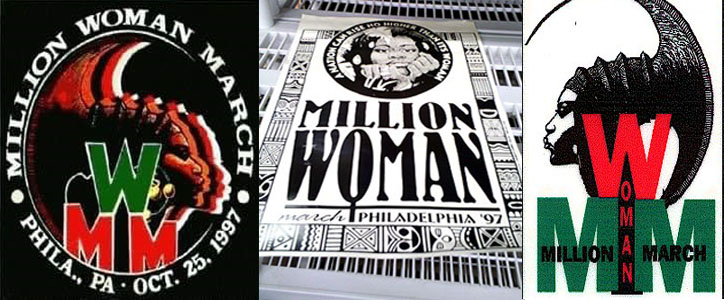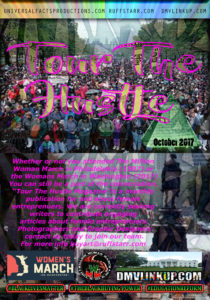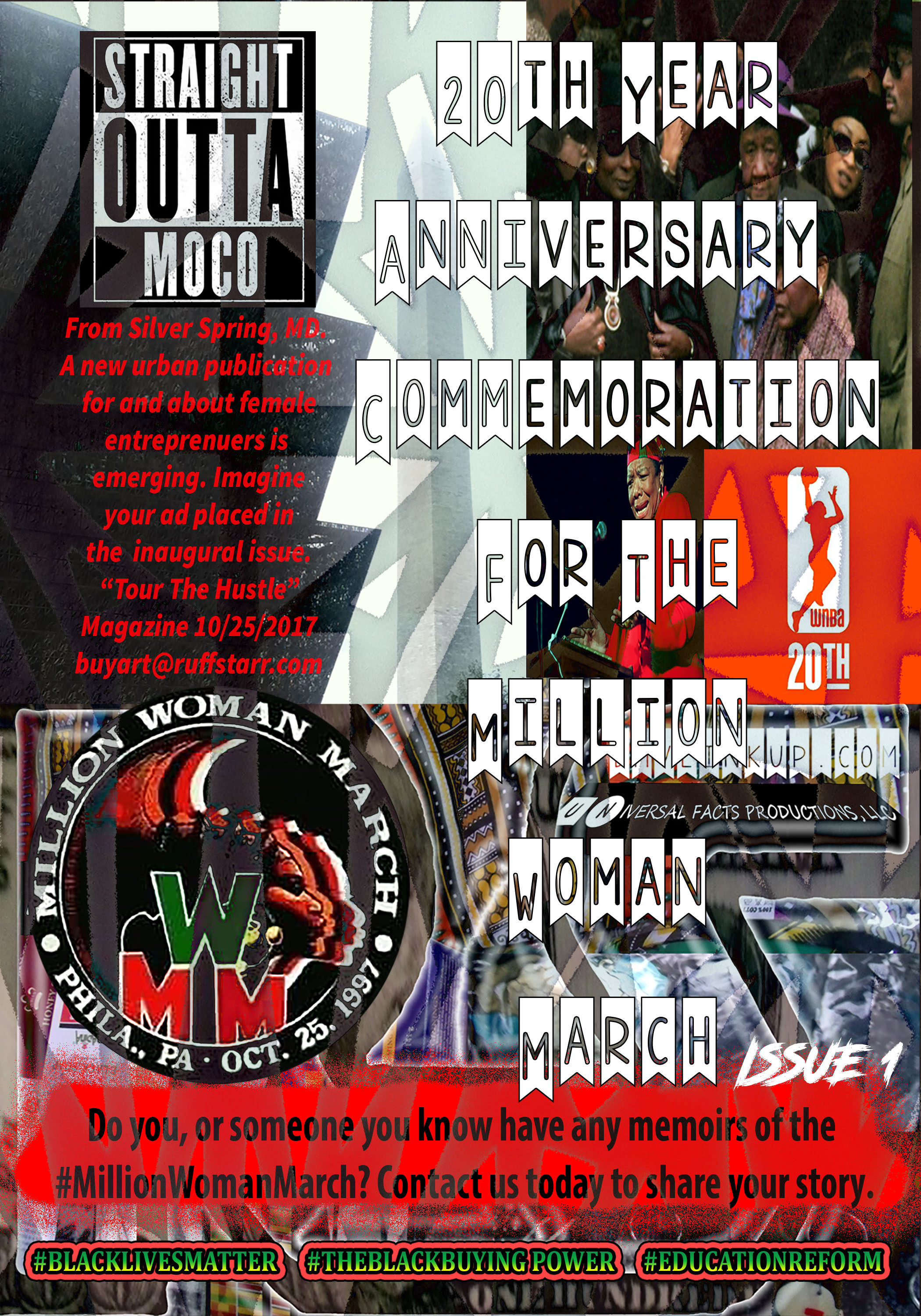20 years ago, millions of women from all races, creeds, and cultures traveled from near and far on one cold October morning to congregate on The Benjamin Franklin Parkway in Philadelphia, Pennsylvania for The Million Woman March. It was a historic occasion for all that were in attendance. The event was broadcasted on major television networks, and families watched their daughters taking action in Philadelphia on Saturday October 25, 1997.
Founded by National Black Activist Phile Chionesu from Philadelphia, The Million Woman March was about social and political empowerment, economic development, sisterhood, and hope. Hope for the upliftment of women and their families, specifically throughout African American communities.
From the Philadelphia Liberty Bell to the steps of the Philadelphia Art Museum at Benjamin Franklin Parkway; women marched, protested, demonstrated, sang, cried, and held hands in solidarity. Several prominent women participated in the event. An enchanted day filled with prayers, music and inspirational speeches by invited guests such as Winnie Madikizela-Mandela, Dorothy Height, Congresswoman Maxine Waters, Sista Souljah, Attallah and Ilyasah Shabazz, and a message was read from Assata Shakur from her exile in Cuba.
The messages of hope, self determination, and leadership that women received at The Million Woman March inspired many grassroots women’s movements over the past 20 years. Education Reform, Human Rights, Holistic Health and Wellness initiatives have been the focus for African American women for decades since the rise of Black Liberation Movements in the 60’s. With the rise of organizations such as The Nation of Islam, The Black Panther Party, and the African Hebrew Israelite’s; African Americans have demonstrated their desire for social justice in the United States for decades. The rise of the #BlackLivesMatter movement was a manifestation of this plight.
Women in politics have made outstanding strides in Women’s history. In the early 70’s, legislative activities brought about many laws that have changed the game for women in the United States. In 1972 for example, Title IX of the Education Amendments was enacted by Congress and signed into law. Title IX of Education Amendments Act of 1972 is now a federal law that states:
“No person in the United States shall, on the basis of sex, be excluded from participation in, be denied the benefits of, or be subject to discrimination under any education program or activity receiving Federal Financial assistance.”
This law applies to public and private institutions that receive federal funds. The law specifically applies to Athletic programs, requiring equal treatment of male and female student Athletes with regards to participation, scholarship, and provision of benefits. Title IX applies to every aspect of education including course offerings, counseling, and counseling materials, financial Aid, Health and Insurance benefits, housing, marital and parental status of students, physical education programs and activities, as well as employment.
Although Title IX came about due to the inequality faced by women in Education, the law benefits males as well as females, younger and older and requires all educational institutions to maintain policies, practices, and programs that do not discriminate against anyone participating in federally funded programs.
Today, Saturday January 21, 2017 marks a point in history when all that women have fought for over the past decades will be reflected upon, celebrated, and re-evaluated. The Woman’s March on Washington is that moment when women will once again step up to a national platform to continue the dialogue about women’s equality Social Justice for our families, and education reform for our children. Until the inauguration of The United States first female President the woman’s march will always be continued. But even after the first female President of The United States a new era for the women’s liberation movement will be born.
This website is dedicated to women in the arts, who use their creative spirit to demonstrate the power of the female mind to create social change. As a Hip Hop artist, R.U.F.F.S.T.A.R.R. stands for more than just rap. But through Hip Hop Music and Theater my aim is to use rap as the dialogue to express my views and combat hate, injustice, violent crimes, domestic violence, police brutality, genocide, and poverty.
“Tour The Hustle” magazine is the next step in my evolution as a multimedia artist. The magazine will enlighten all who embrace it with the wisdom of the women’s spirit to create, nurture, and develop. Whether or not you attended The Million Woman March or The Woman’s March on Washington you can still be a part of the conversation. Tour the Hustle!
Sources:
Official Million Woman March Page
Official Women’s March on Washington Page
Women’s Sports Foundation
Title IX Frequently Asked Questions
buyart@ruffstarr.com






